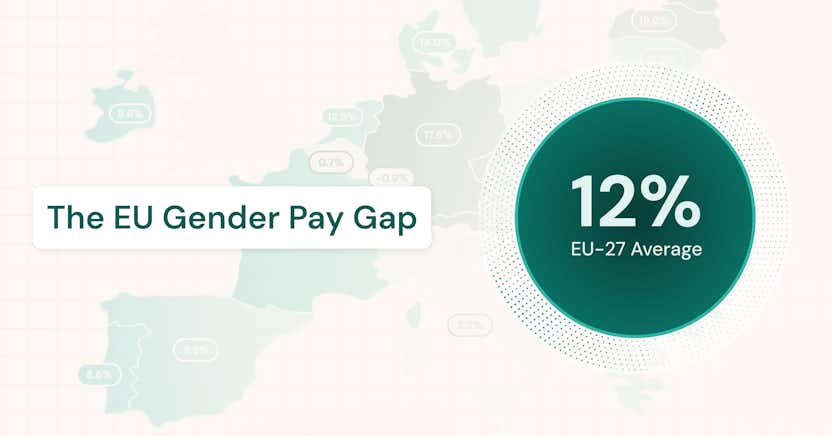
Local requirement
Israel
This page describes Israel’s legal requirements for pay equity reporting. Subjects include: which organizations are subject to requirements, the necessary deliverables, how to begin, and how PayEquity by beqom can help companies meet the requirements.
Resource: Local reporting requirements in Israel
Israel has had equal pay laws since 1996. But their enforcement has been limited. To strengthen pay equity action among employers, a recent amendment to the law adds a reporting requirement. This new requirement increases transparency and helps clarify pay structures for companies and workers. The goal is to motivate companies to earn a reputation for good pay equity that will help them recruit and retain employees.
The new pay gap reporting requirement applies to all private employers, public entities, trading companies, and NGOs with over 518 employees. Each organization is required to generate three different reports: an internal report, a personal report per employee, and a public report. They should be submitted annually. The first report, based on 2021 pay data, was due on June 1, 2022.
Requirements
The three reports contain similar information but are geared towards different audiences. In general, the information should be segmented per type of employees, positions, and rankings.
The internal report is the most detailed, containing:
- The average salary of each group.
- The average pay gap between men and women within each group.
- The rate of employees with compensation lower than average for a full-time worker in the group, segmented by gender.
The personal report per employee includes what group each employee belongs to and what the pay gap is within that group. Essentially, each employee will see their group definition and the associated pay gap.
The public report should show two things:
- The pay gaps per group.
- The rate of employees with compensation lower than the average for a full-time worker in the group, segmented by gender.
Essentially, this report contains anonymized data from the internal report. It often also contains some discussion or elaboration of the organization’s pay equity situation.
In just a few clicks, PayEquity by beqom users can generate a complete 3-in-1 Excel report meeting Israel’s reporting requirements. This report only requires the following employee-level data:
- Gender
- Compensation
- Indicator of full-time or part-time. This should be given on a 0-1 scale with 0 = no time and 1 = full time.
- Segmentation by position and ranking
What happens next
Since each report is actually three reports, there are three actions required for successful completion.
- The organization’s management should keep the internal report on file. The state commission has the right to inspect this report upon request. This is essentially the complete Excel report, possibly with some written explanations for identified differences.
- On its own initiative, the employer should deliver the personal report per employee to all employees.
- The public report should be made available to the general public. Usually this means posting it on the organization’s website.
There are currently no fines associated with non-reporting. However, the new law increases the national standards for pay transparency. Companies that do not report may therefore find themselves facing PR issues. They may also fall behind when it comes to recruiting and retaining quality employees.
Further support in PayEquity by beqom
PayEquity by beqom streamlines reporting for companies in Israel, generating the entire three-part report. Users can also use PayEquity by beqom’s features to build on this basic reporting and make a deeper commitment to pay equity and transparency.
- Pay equity analyses: This tool not only measures the adjusted pay gap but also provides suggestions (specific raises for specific employees) on how to close it.
- Compensation Assistant: Once the pay gap is closed, this tool helps ensure that it does not come creeping back through promotion or new hire decisions.
- Drill-down capabilities: Insight into specific groups of employees, like part-time or temporary workers, helps employers get a better understanding of their pay structure.
Please note that while this local resource information has been compiled by PayEquity by beqom's legal and pay equity experts, it does not constitute legal advice.
More on local requirements and reporting
beqom's pay equity tools make complying with local requirements and regulations easier than ever before, allowing organizations to conduct pay equity analyses to identify any pay disparities.

Sweden — Pay equity analysis and reporting (lönekartläggning)
Every year, Sweden requires all employers to conduct a pay equity analysis (lönekartläggning) with a few key requirements. Find out more on our page.

State of California — Pay transparency and pay data reporting
In the US state of California, pay equity legislation is relatively progressive. It includes both a data reporting requirement and a pay transparency law. This article goes through the requirements for all aspects of the law and how PayEquity by beqom can help support employers.

Ireland — Gender pay gap reporting
This page provides information for organizations looking to understand and respond to Ireland’s Gender Pay Gap Information Act 2021.

France — Gender equality index
For companies operating in France, this article provides information on pay equity reporting and associated legal requirements.

Israel — Gender pay gap reporting
This resource article provides information about Israel’s gender pay gap reporting requirements and an overview of how to create and complete the reports.

Spain — Pay equity analysis and reporting
Pay equity laws in Spain ask all companies to keep a remuneration register, with additional analysis and reporting for slightly larger employers.

USA - Pay data reporting (EEO-1)
Although no gender pay gap reporting per se is required, some demographic data reporting is required in the US.

UK — Gender pay gap reporting
The United Kingdom (UK) requires gender pay gap reports from organizations of a certain size. This page outlines the UK requirements and how to get started.

Norway — Pay equity analysis and reporting
In Norway, employers with 50+ (sometimes 20+) workers must prepare annual and biannual pay equity reports. This page outlines the requirements.

Canada — Pay equity analysis and reporting
Companies operating in Canada should be prepared to comply with federal pay equity analysis and reporting laws. Some provincial regulations also exist. We give readers an overview of Canada’s detail-oriented requirements.

Local requirements - Pay equity analyses and reporting
Get an overview of some of the local pay equity requirements that many of our customers need to fulfill, and achieve effortless compliance today.
Recent blogs on Pay Equity

The C-Suite’s Language: How to Win Executive Buy-In for Pay Equity and Transparency
Win executive buy-in by translating pay equity goals into C-suite language: ROI, risk reduction, and operational efficiency.
Read more

The EU Gender Pay Gap
The average EU gender pay gap sits at a persistent 12%. Download our new infographic for an overview of the gender pay gap across member states and the national transposition status of the EU Pay Transparency Directive.
Read more

Humanizing Compensation: Why Pay Is More Than Just a Paycheck
Compensation is about more than just a paycheck. Discover why it's essential to humanize compensation to build trust and create a more engaged workforce.
Read more
